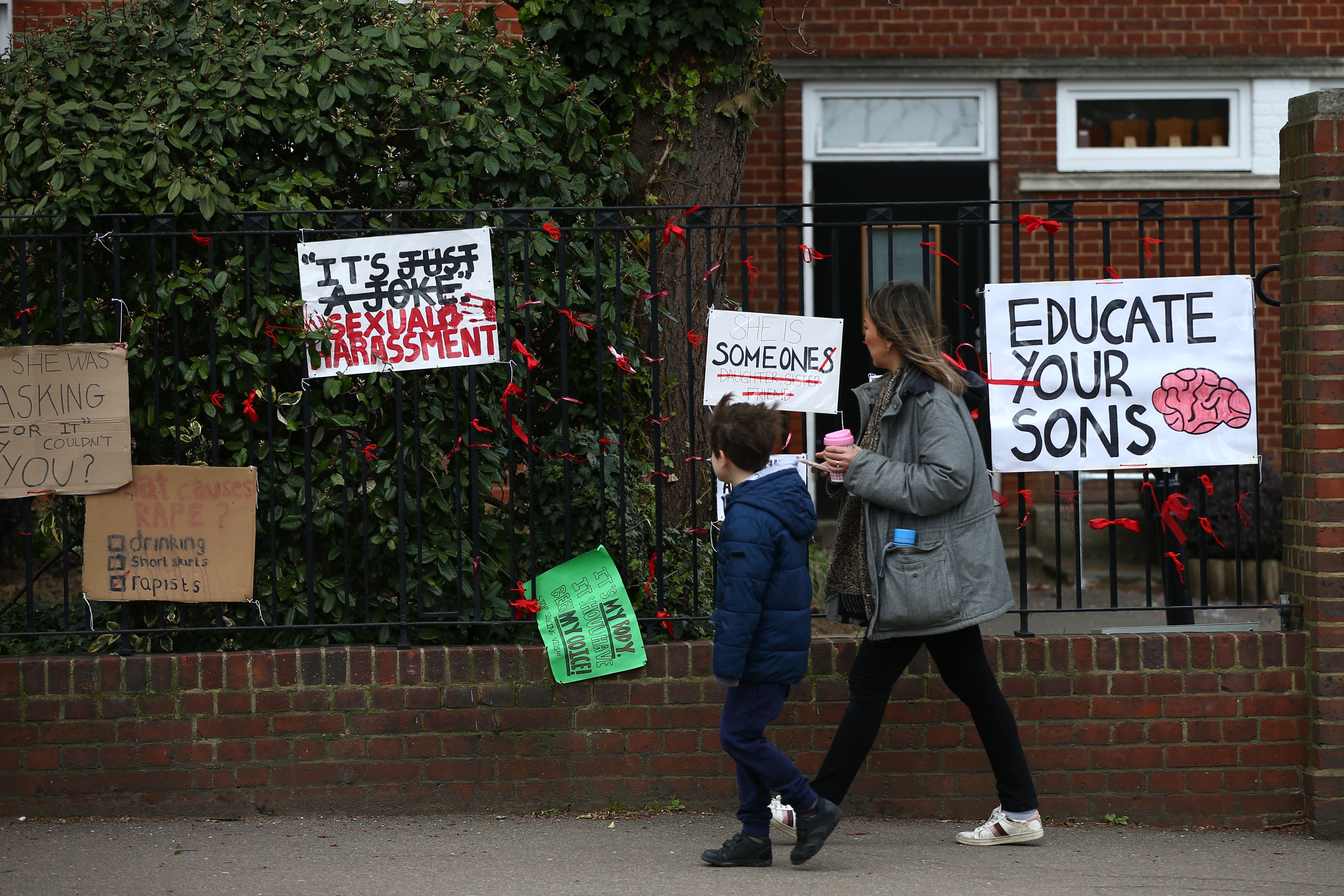More than half of girls suffer sexual harassment on school, college or university grounds — poll
‘Just like in high streets, parks and bus stops, they are facing relentless harassment every day,’ warns charity boss

Your support helps us to tell the story
From reproductive rights to climate change to Big Tech, The Independent is on the ground when the story is developing. Whether it's investigating the financials of Elon Musk's pro-Trump PAC or producing our latest documentary, 'The A Word', which shines a light on the American women fighting for reproductive rights, we know how important it is to parse out the facts from the messaging.
At such a critical moment in US history, we need reporters on the ground. Your donation allows us to keep sending journalists to speak to both sides of the story.
The Independent is trusted by Americans across the entire political spectrum. And unlike many other quality news outlets, we choose not to lock Americans out of our reporting and analysis with paywalls. We believe quality journalism should be available to everyone, paid for by those who can afford it.
Your support makes all the difference.More than half of girls in the UK have been subjected to sexual harassment on school, college or university grounds, according to a new study.
Plan International UK, which polled just over 1,000 girls aged between 14 to 21, found some 58 per cent of girls aged have experience sexual harassment in their educational institution, with two thirds of them facing harassment from someone at their school, college or university.
It comes as more than 11,000 testimonies from students of rape, sexual harassment and assault at both private and state establishments were made to a website that records anonymous accounts of sexual abuse.
The latest research found the girls also suffered sexual harassment away from educational settings on the street and in public spaces. Some 22 per cent had received unwanted comments of a sexual nature, while 12 per cent had been followed, and ten per cent had been grabbed.
Rose Caldwell, chief executive of Plan International UK, said: “It is appalling that so many girls and young women have experienced harassment in an educational environment. School, college and university should be a safe space for girls to learn.
“Instead, just like in high streets, parks and bus stops, they are facing relentless harassment every day and they want it to stop. It is vital that schools recognise and tackle this if we’re to end public sexual harassment in the UK.
Read more:
- Maria Miller: Tory MP says she suffered sexual assault at school as 10,000 report incidents of abuse
- School abuse claims may be ‘tip of the iceberg’, as police warn some crimes possibly covered up
- Elite London school reports pupils to police over sexual assault allegations
- Opinion: Anyone who went to a private school shouldn’t be shocked by the allegations
“This can be done by educating boys on respect and consent, taking girls’ concerns seriously, and providing information and support on dealing with harassment. Boys can play their part too, by calling out harassment when they see it and being proactive bystanders.”
She warned the “scourge of public sexual harassment” that “blights so many girls’ lives” would only be eradicated with a “concerted effort from all sides” - which would in turn enable girls to “flourish both in and out of” education.
Almost three quarters of girls polled said schools should offer support and information for those who have been subjected to sexual harassment on the street.
Everyone’s Invited, the site where users are submitting anonymous testimonies of sexual violence, was established last year and its founder Soma Sara has warned “rape culture” is an issue that spans across all schools.
Gavin Williamson, the education secretary, has said the allegations on the site are “shocking and abhorrent” as he promised to take action to tackle the issue.
The new study follows sustained criticism the government is not doing enough to tackle violence against women and girls after Sarah Everard’s death triggered an outpouring of women sharing their own stories of sexual harassment and assault in public spaces.
Maya Tutton, who runs the Our Streets Now campaign to end street harassment with her sister, recently told The Independent they also have a campaign called Our Schools Now calling for pupils to be taught about public sexual harassment.
Ms Tutton, who said she had suffered sexual harassment, added: “We have two key goals – preventing boys from ever becoming perpetrators and teaching girls and victims of public sexual harassment it is never their fault and ensuring they have proper support at school.
“The vast majority of testimony is girls having serious threats of sexual violence against them on the way to school. We are not talking about a man saying, ‘Hi beautiful’, on the street, we are talking about serious threats of sexual violence often made at girls and non-binary people.
“Women and people of marginalised genders’ fears around public sexual harassment have been further compounded during the pandemic as less people have been on the street in lockdown and incidents have often been more threatening.”
Join our commenting forum
Join thought-provoking conversations, follow other Independent readers and see their replies
Comments